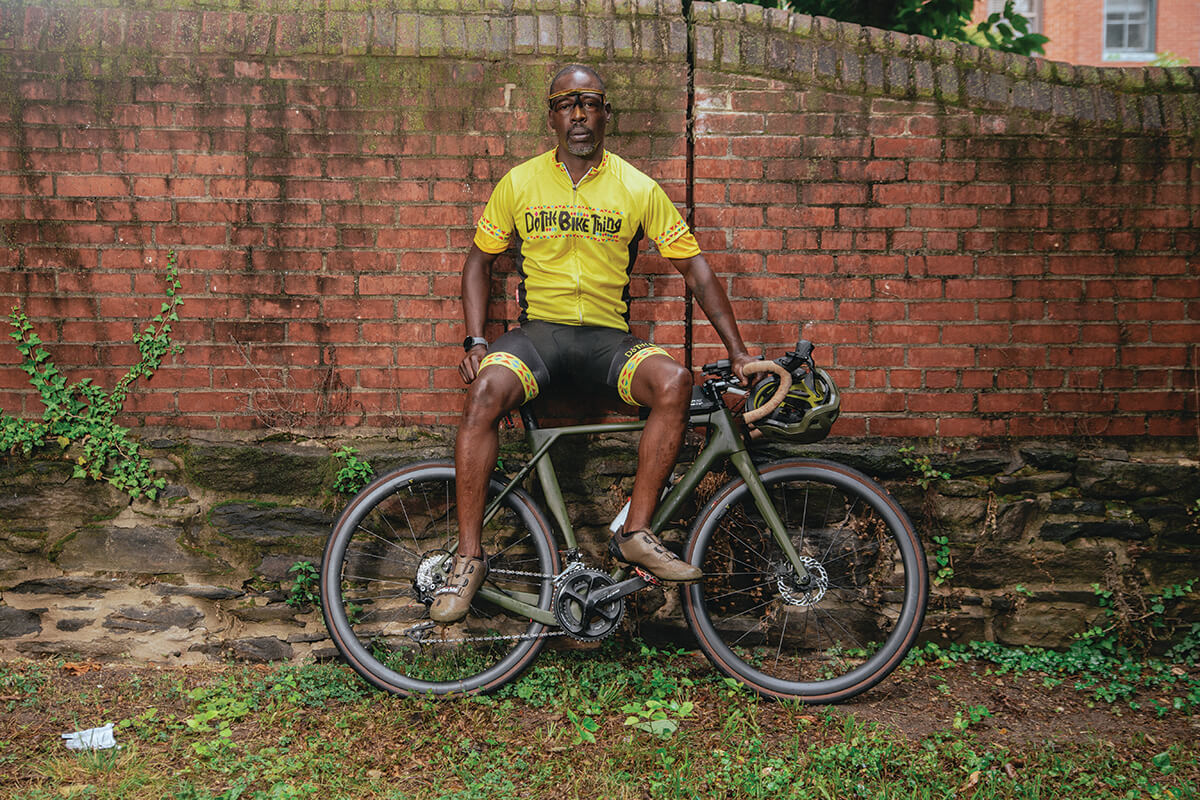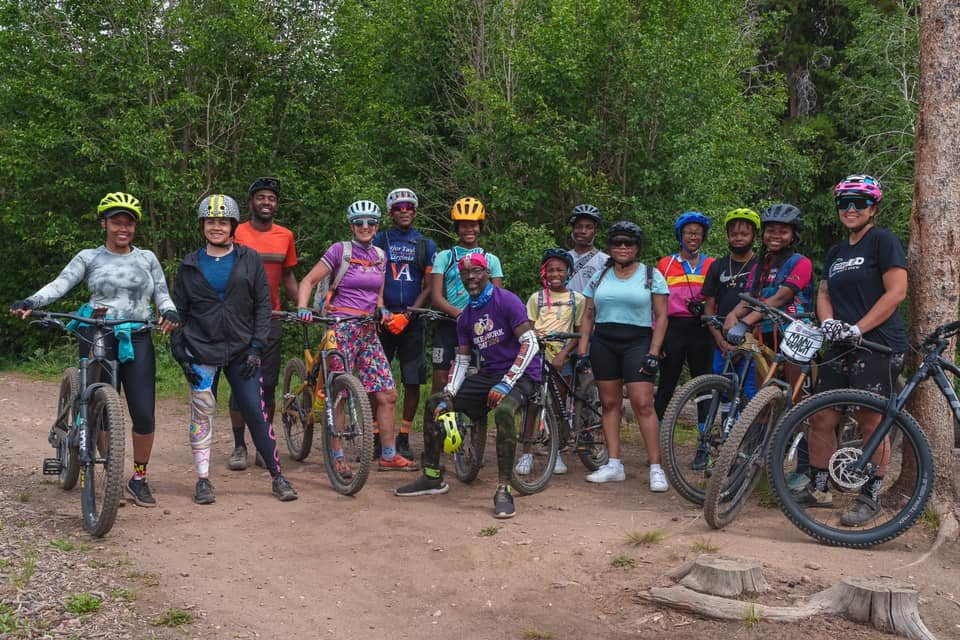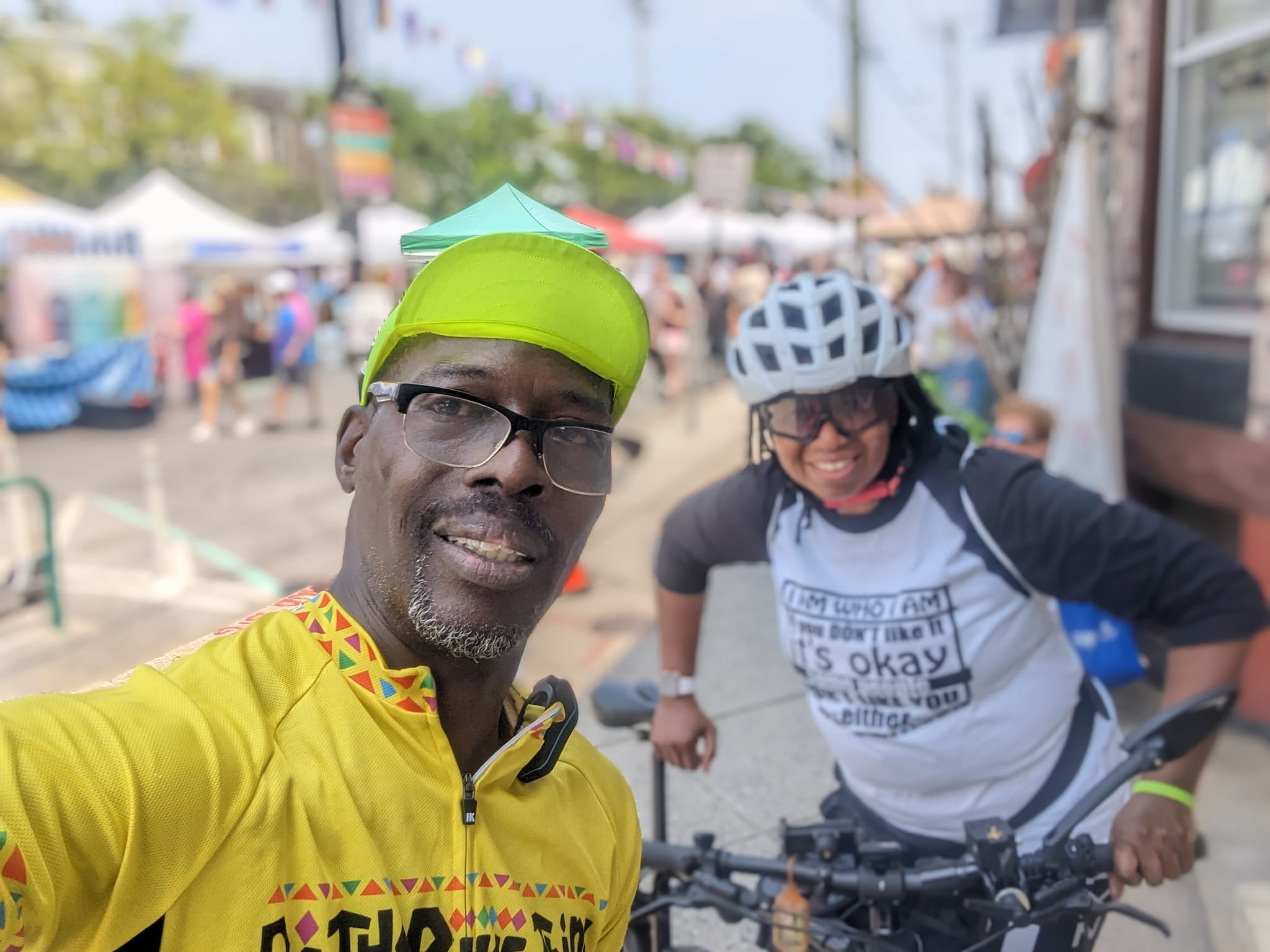News & Community
The City That Rides: Meet Bicycling Advocate Shaka Pitts
The co-founder of Baltimore-based advocacy group Black People Ride Bikes now leads the Wednesday-night “Do the Bike Thing” ride.

As thousands of fans are making their way to Camden Yards to see the Orioles take on the Cincinnati Reds, a dozen and a half bicyclists gather in nearby St. Mary’s Park for an evening ride. Not surprisingly, the conversation turns to someone’s new bicycle lights, a recent 50-mile jaunt posted on the popular bike app Strava, a planned dinner stop at the New Seasoned Mariner along Bear Creek, and the old-school hip-hop coming from bicycle-pinned speakers.
The discussion briefly changes to another recreational activity about to become legal in three days—one or two riders may or may not have arrived after imbibing a certain herb—and then someone makes a crack about the weird transition of hopping off a bicycle and immediately getting behind the wheel of a car. “I nearly drove onto the sidewalk to park once—like I was locking up my bike.”
“Biking will mess you up,” acknowledges Shaka Pitts, the leader of the Wednesday night “Do the Bike Thing” ride. “I’ve caught myself as a backseat passenger in a car saying, ‘Car left! Car back!’—like I’m on a ride. Once, I walked the Maryland Avenue bike lane up to Baltimore Bicycle Works. Not the sidewalk. In the bike lane. Didn’t even realize it.”

Pitts grew up in Brooklyn, New York. It shows, too, not just in the name of his organization, but his general City That Never Sleeps pace. He’s been biking just five years, but in fact, before launching “Do the Bike Thing,” he co-founded the Baltimore-based advocacy group Black People Ride Bikes in 2019. That was just a year after he got back on a bike for the first time since he was a teenager. Before all this, in 2010, Pitts, who works by day as a communications associate for the Baltimore County Register of Wills, founded Pit Fights Battle League, one of the longest ongoing hip-hop events in the city.
It was Pitts’ background running track, however, that led him to both Maryland and bicycling—albeit circuitously. After a scholarship to Norfolk State, he ran competitively in the Army before ending up at Fort Meade. His track experience later led to an informal coaching role, which convinced him (for better or worse) that he should start running competitively again, so he entered a national master’s race. A hamstring pull before the event persuaded the former sprinter to buy a bicycle to maintain his fitness while he recovered.
For Pitts, who bike-commutes from Seton Hill to his job in Towson, “bicycling meant freedom.” He began riding to Loch Raven Reservoir, Fort Armistead, and Washington, D.C., and all points in between. “It was the ability to be wherever I want in this city within an hour, and that’s just going 10 miles an hour.” He naturally gravitated to helping others do the same.
Biking also became an unexpected “social equalizer,” Pitts says. “I’ve been Black all my life and the one thing that has made non-Black people comfortable with me is being on a bike. No one has ever jumped from me when I pulled up on a bike. Never. For some reason the bike gives off a peaceful, non-threatening vibe. A bike can bring all kinds of people together, regardless of their nationality or background. I hang out with this gay couple that rides. Never in my life would I be hanging out with these beautiful people without this.”

Not that life off the bike is not ugly from time to time. A few days before the June bike ride to Bear Creek, Pitts stopped in on a break from work to buy pistachios at Towson Wines & Spirits. An everyday exchange—the owner ignored Pitts after he had patiently inquired about where to place his credit card—ended with the owner spewing a racial epithet and then doubling down on it.
Pitts, who recorded the episode on his phone, later organized a protest in front of the store, essentially shutting down the business for a day.
“Maybe he’s a grumpy old man having a bad day, but he says that [racial epithet] while he sees I have my phone out, recording,” Pitts says, “Then says, ‘Did you get that?’ He assumes he has power and so he can do this, which he knows is going hurt me, and I’m someone who has no power, and therefore he’ll suffer no consequences because he never has.”
Instead, the episode went viral on local social media and the subsequent protest with artists and activists from Pitts’ hip-hop community was covered by multiple news outlets. It also garnered support from neighboring businesses, who said they’d no longer patronize the store.
“Organizing the protest, it’s not stepping out of my box,” Pitts says. “I bring in other people, I lateral things off. It’s the same thing I do in the hip-hop world, it’s the same thing I’m doing in the biking community. I’m just trying to fill a void.”